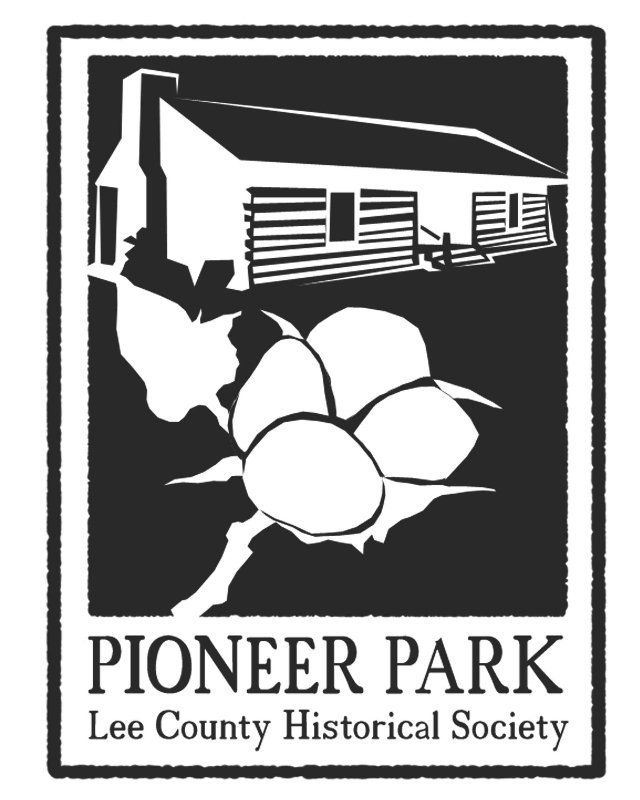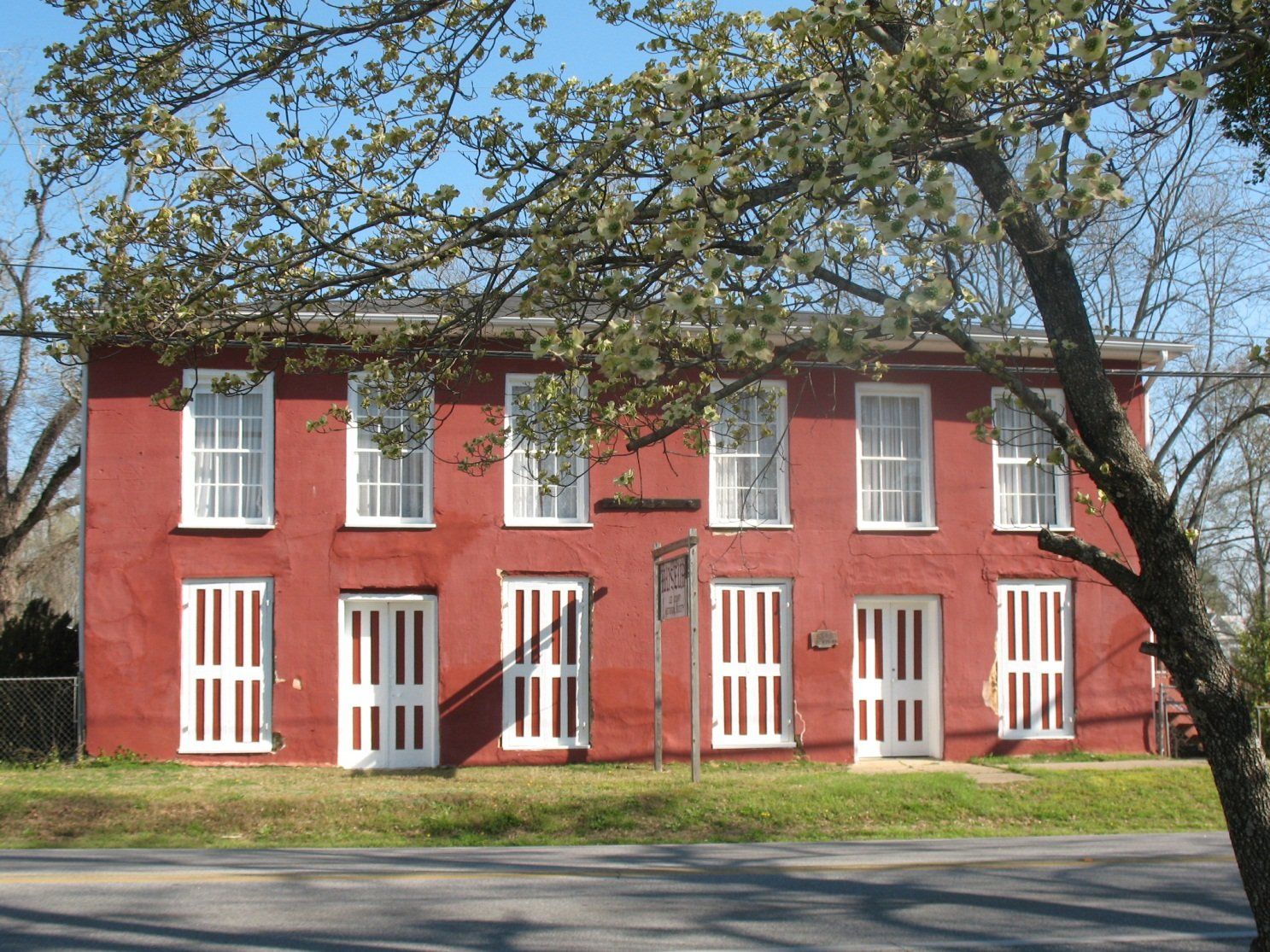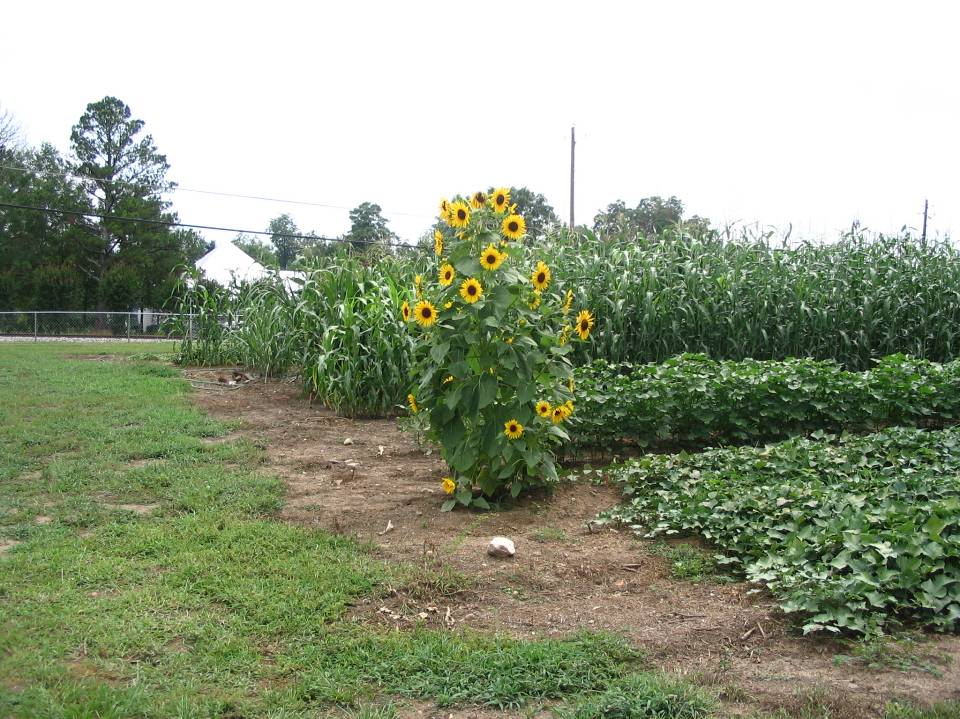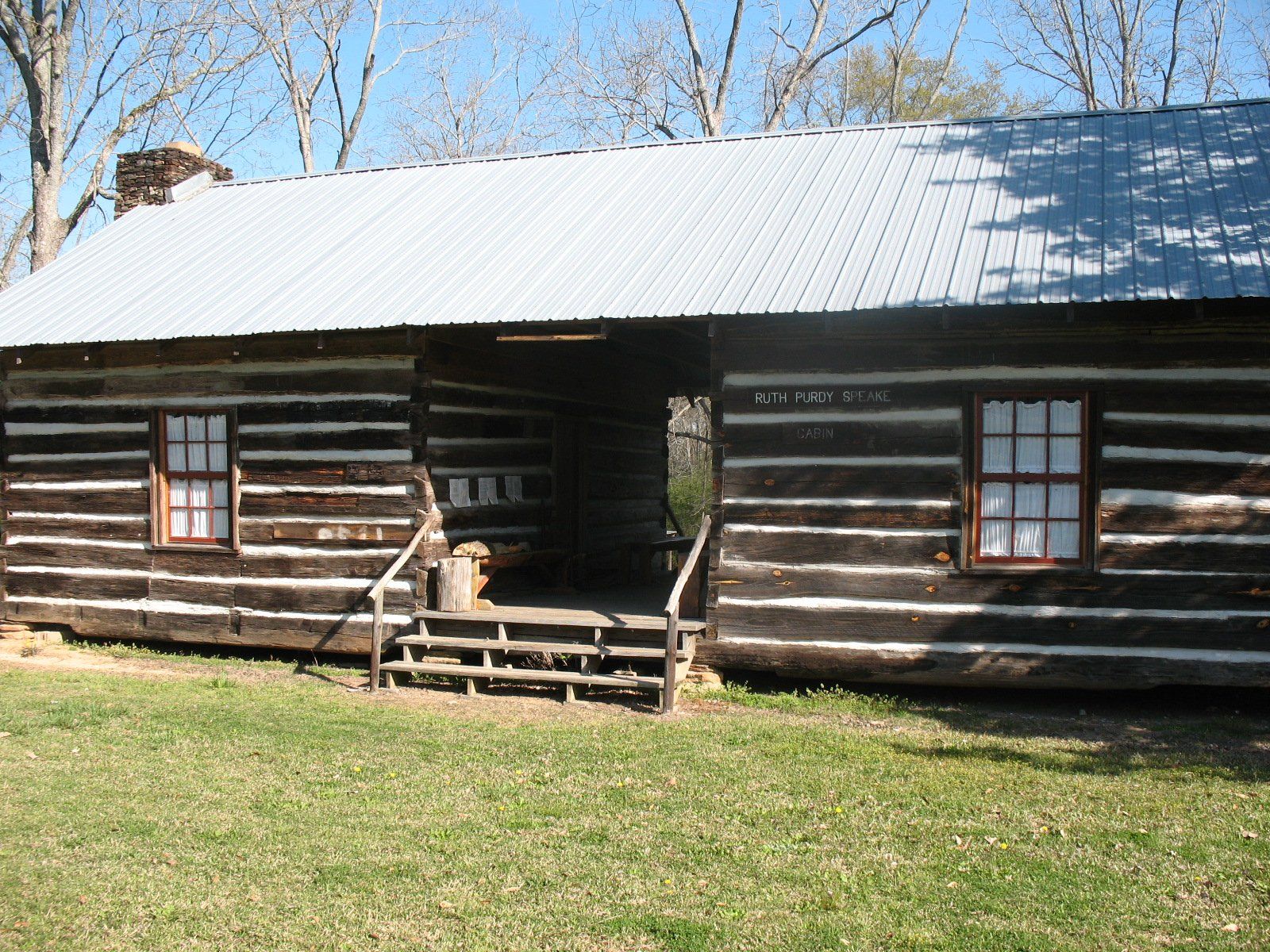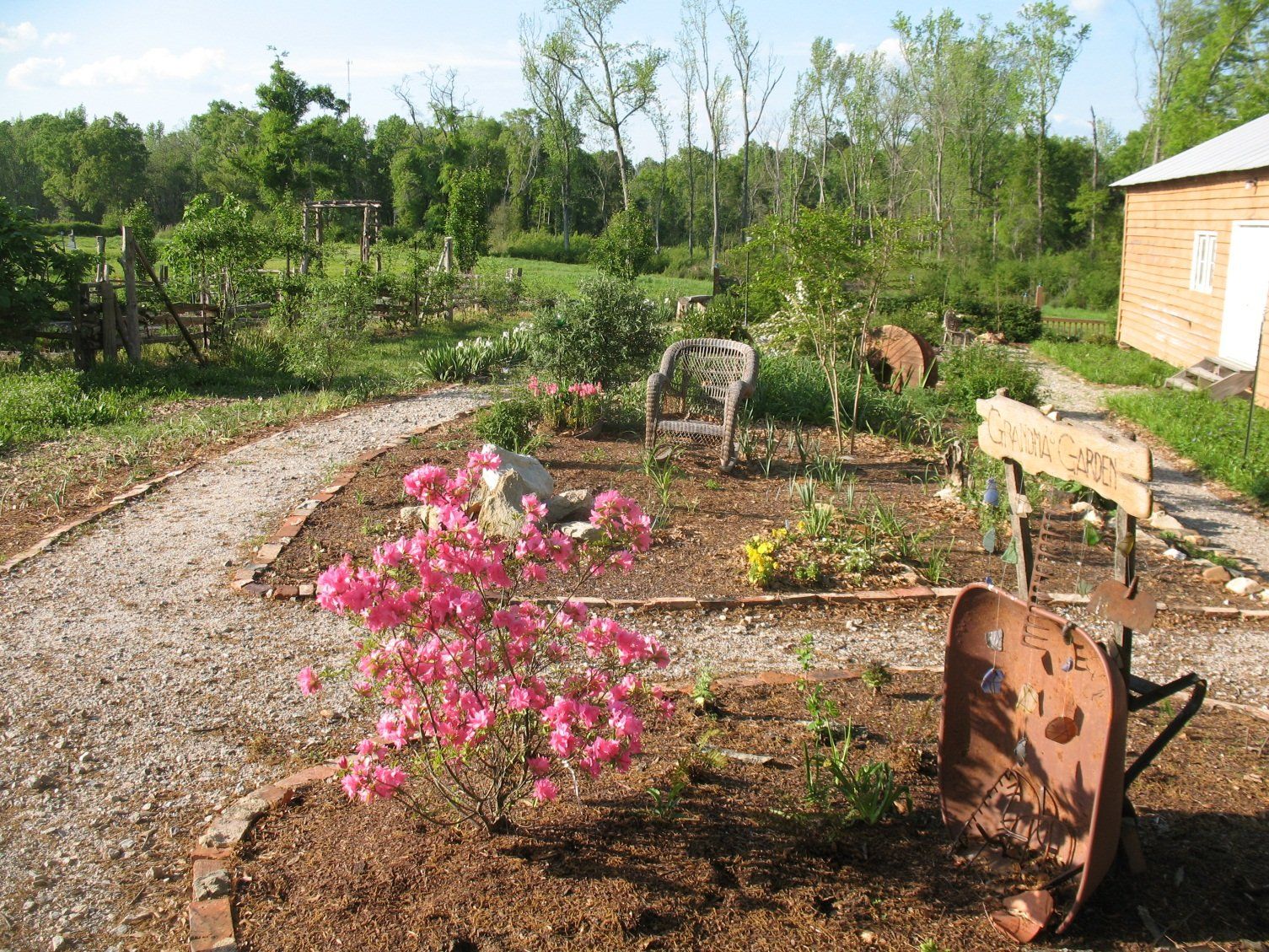Buildings and Exhibits
Pioneer Park has many great exhibits and displays. The museum is currently made up of nine structures: the Old Trade Center , the Ruth Purdy Speake Cabin , the Taylor Whatley Building , the Blacksmith Shop , Doctor McLain’s Office , the Loachapoka Gin Office , the Cook House and a reconstruction of the Loachapoka Jail. A band stand is used for outdoor concerts, entertainment, and classes. Recently, several gardens have been added to Pioneer Park to complement living history activities. The most recent addition is the Barnard-Newell Log House along with its Native American Garden.
Old Trade Center (circa 1845)
The Old Trade Center is the oldest commercial structure in Lee County and serves as the main Museum building. One of the two large rooms downstairs is devoted to exhibits of the history of Lee County, AL. The other large room houses examples of things sold in the Trade Center from hand-made laces to horse collars, the story of Rousseau’s raid (Civil War), and the story of the turtles (Loachapoka means “the dwelling place of the turtles”). Upstairs is a recreation of the home the last owner of the building made for his family.
Taylor Whatley Building
The Taylor Whatley Building exhibit is made up of mostly farming tools and implements. It has items pertaining to agriculture, mechanics, blacksmithing, dairy and many other areas. It was named for the LCHS Board Member who supervised its construction in the 1970s.
McLain Building
Dr. McLain practiced medicine in Salem, Alabama, from 1902 until 1956. Salem is located in eastern Lee County. Using many of the original furnishings, his office has been recreated to tell the story of a genuinely kind hearted man and his practice of medicine. Just like Dr. McLain’s office in Salem, this office contains a pharmacy, a soda fountain, the old Salem post office, and Dr. McLain’s office. The building itself was originally a barn and warehouse for the cotton gin that operated next door. The building was renovated in 2007-2008 with volunteer labor.
Loachapoka Calaboose
This reproduction of the Loachapoka Calaboose or jail was completed by volunteers at the end of 2008. The original building was discovered on the LCHS property behind and adjacent to what is now the Dr. McLain’s Office. The original building was covered in wysteria and badly deteriorated, but measurements were carefully taken to make this construction as near to the original as possible including locally milled lumber. Interior doors and bars are from the original jail.
Band Stand
The Band Stand is used for outdoor concerts, entertainment, and special classes.
Crops Garden
The Crops Garden is an annual garden of field crops that were grown in this area in the late 1800s. Visitors to the annual Historical Fair in October help harvest sweet potatoes, sugarcane, sorghum, peanuts, and cotton.
Native American Garden
Adjacent to the Barnard-Newell Log House is the “Native American Garden”, Pioneer Park’s first effort to grow the “Three Sisters” just as native Creek Indians would have grown corn, beans and squash before the white man arrived.
Ruth Purdy Speake Cabin (circa 1840s)
The Ruth Purdy Speake Cabin offers a look at the frontier days of Alabama. It was moved on site from its original location in nearby Chambers County and named for a long-time President of the LCHS who supervised its relocation. Demonstrations of open hearth cooking in the fireplace are shown on Second Saturdays. It also contains a one-room school typical of the late 1800s.
Blacksmith Shop
Blacksmiths meet every second Saturday of the month to hone their craft, share ideas, and demonstrate their craft for visitors. The shop was built in the mid 1980s in cooperation with the local chapter of the Alabama Forge Council.
Loachapoka Gin Office
The Loachapoka Gin (also known as the Ward Brothers Gin) was the only industry in Loachapoka when it burned in 1969. The cotton gin office and the cotton scale has been restored, and the Gin Office now hosts a history of cotton production exhibit. This tiny building was also once the Town Hall for Loachapoka and served as its polling place.
Cook House
The Cook House is used to prepare and serve meals during special events at Pioneer Park.
Barnard-Newell Log House
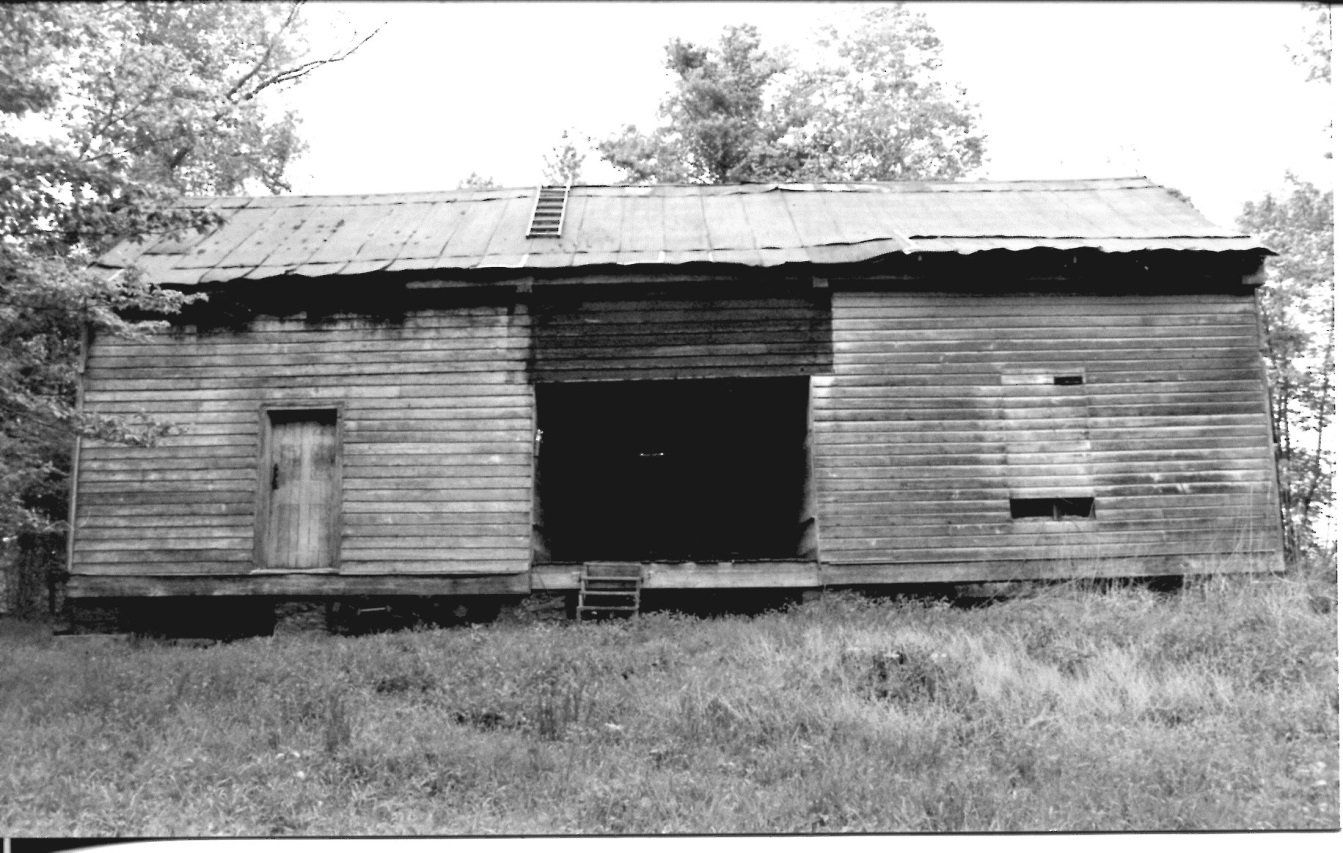
Slide title
Write your caption here
Button
Slide title
Write your caption here
Button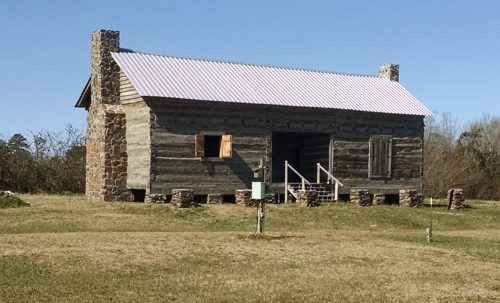
Slide title
Write your caption here
Button
LCHS has been slowly restoring the Barnard Log House for more than five years. Grants and fund-raising events like Pioneer Day have helped pay to dismantle the house, replace termite infested and water- damaged logs, add a new roof and now a front porch – which hopefully will soon be covered. The log house is furnished with artifacts and replica furniture from the late 18th and early 19th century that might have been found in most Creek or American homes in the 1830s. Posters and exhibits in the cabin tell the story of this area’s native Creek Indians.
McLain Garden
The McLain Garden is a collection of culinary and medicinal herbs, some of which were used as folk medicine in the South. The garden is named because Mrs. McLain often grew herbs and medicinal plants in her garden near the Doctor’s office so Dr. McLain could make medicines for his patients when they were not available from any other source.
Grandma’s Garden
Grandma’s Garden is between the McLain Building and the McLain Garden and is being developed by Lee County Master Gardeners (pictured). It is a collection of plants and flowers that would have been grown in Grandma’s backyard flower garden 100 years ago. The millstone fountain in the garden is part of a rainwater collection sytem that is used to irrigate the garden.
When Dr. Alexander Nunn established the Lee County Historical Society in 1968, he wanted an heirloom flower garden next to the Trade Center Building. This garden was the original Grandma’s Flower Garden and it still contains some of Dr. Nunn’s original plantings. However, growth of nearby pecan trees have made it unsuitable for many of the flowers that Dr. Nunn planted. The area is being transformed into an Heirloom Tea Garden (Camellia Garden) by the Auburn-Opelika Men’s Camellia Club.
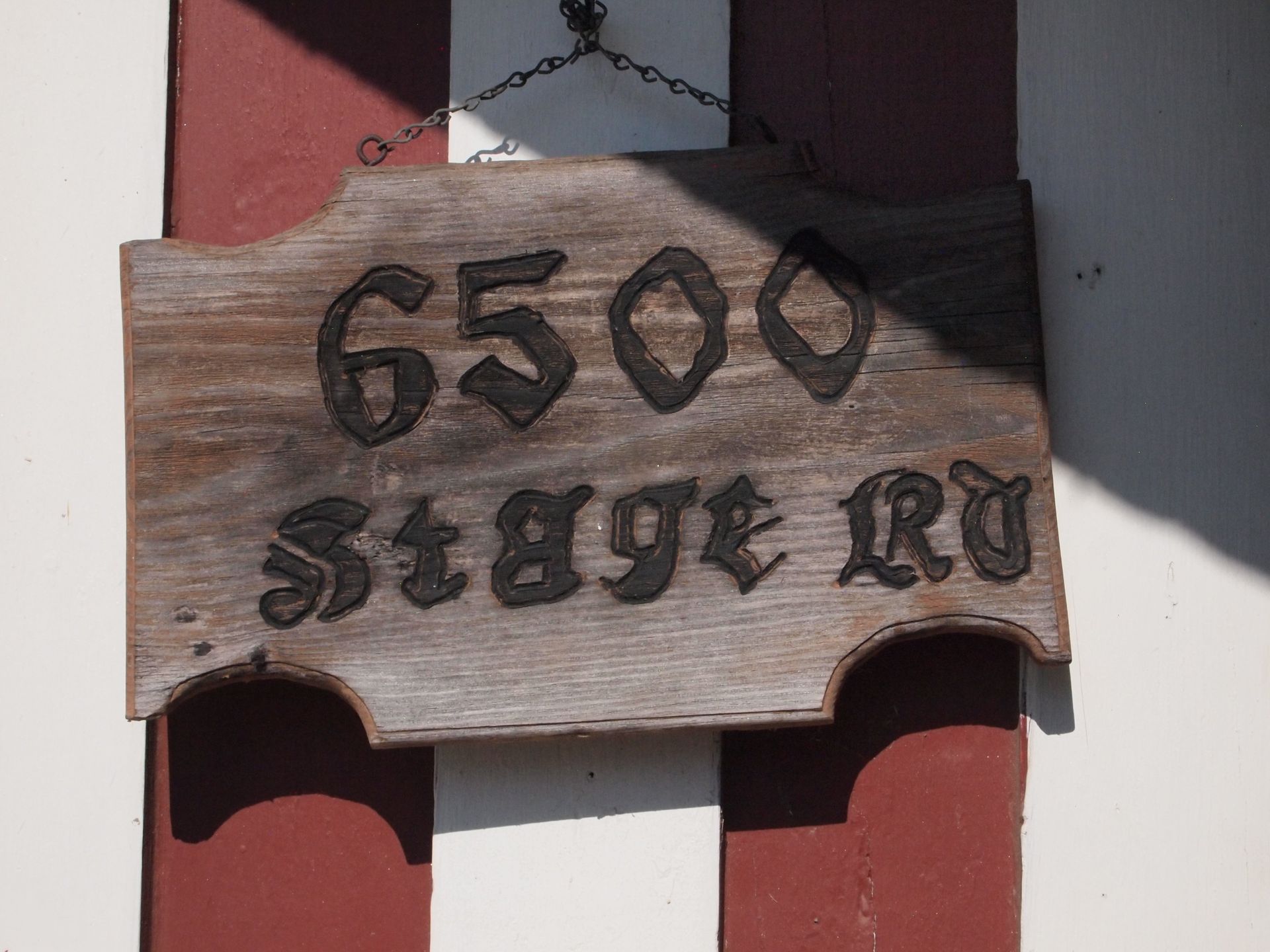
Loachapoka, Alabama 36865
- Auburn Heritage Association
- Chattahoochee Valley Historical Society
- Clay County Historical Society
- Columbia Historical Society
- Dale County Historical Society
- Dothan Landmark Park
- Early County Historical Society
- Eufaula Heritage Association
- Henry County Historical Group
- Historic Chattahoochee Commission
- Historic Columbus Foundation
- Historic Westville
- Troup County Historical Society
